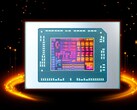With AMD Ryzen 7000 processors making their way to end users, the company recently hosted an in-person deep-dive experience event in Mumbai, India, last week. We got a chance to take some of the AMD-powered systems for a spin and discuss various aspects of these processors and their performance with company reps.
AMD's system integrator and OEM partners including Asus, MSI, Gigabyte, ASRock, and Gtek all showed off enthusiast gaming and workstation builds built on the Ryzen 7000 platform. All demo systems were equipped with AIO coolers. We had some observations during our time with these systems, including:
- AMD said DDR5-6000 is the sweet spot for the Ryzen 7000 series. However, we did not find any perceivable performance benefit in switching from DDR5-5600 to DDR5-6000 in gaming (tested with Far Cry 6 at 4K with no upscaling).
- There was a perceivable delay in memory training while switching DDR5 modes. The feedback was passed on to the engineering team working on the AGESA firmware to which they responded positively.
- DDR5-6500 was highly unstable with benchmarks such as 7-zip flat out refusing to run.
- We noticed that disabling Core Performance Boost can cap the boost clocks to about 4.45 GHz all-core in the Ryzen 7 7700X. However, this leads to a performance deficit of about 20% in the V-Ray CPU benchmark.
- There was a lot of consternation from the overclocking community about the 95 °C temperature being labeled as "normal" by AMD. The company still maintained that this should not affect performance in any way. When we did a 7-zip benchmark test during the event, the Ryzen 9 7950X would easily hit the 90 °C mark while consuming close to 187 W.
- We also observed the Gigabyte Aorus X670E with a Ryzen 5 7600X reporting a chipset temperature of 152.6 °C. This is likely due to a bad sensor or could be a firmware bug, and we've reached out to Gigabyte for the same.
We also had a chance to talk to some reps from the Radeon Technology Group, and they seemed quite enthusiastic about the upcoming RDNA 3 launch. Apparently, the cards are "performing great" in their labs, but we will let time and our own testing judge that. There was also considerable buzz among the enthusiast community about the Ryzen 7000 X3D series, but AMD didn't offer any specific comment on that.
For now, the Zen 4 Ryzen 7000 series seems to be offering good improvements over its predecessor. However, cost considerations of transitioning to the AM5 platform and the fact that motherboard makers still have some optimization work to do on the BIOS means that users would do their best to fully evaluate their options or wait out before taking the plunge.
Check out our review of the AMD Ryzen 9 7900X and Ryzen 5 7600X for more information and performance comparisons. A review of the Ryzen 9 7950X and Ryzen 7 7700X is currently underway.
Source(s)
Own


















